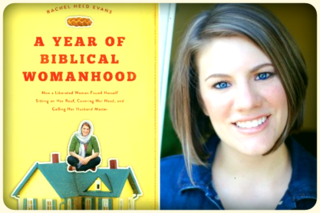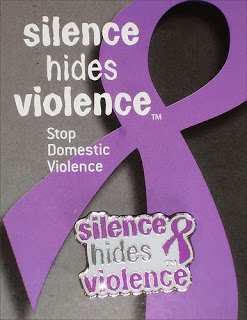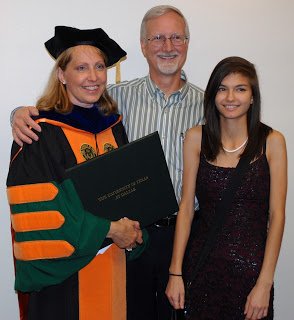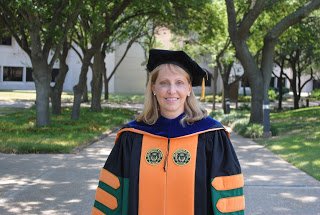
Blog & Resources
Looking for my thoughts on everything from bioethics to movies? You came to the right place. And while you’re here, check out my free downloadable resources.
Sign up to be notified when new posts release.
Strengthen Your Marriage: Build a Safe Haven
Today I’m happy to welcome guest blogger Dave Friese, the president of and a pastoral counselor at Restore and Rebuild Ministries.Everyone goes into marriage wanting happiness. Our quest for a happy marriage will not be without its obstacles. And how we deal with the obstacles will determine the vitality of our marriage.Marriage is to reflect the “oneness” relationship between Christ and the church. In his book, A Model for Marriage, pastor Tim Keller puts it this way, “Marriage serves as a sanctifying process as spouses strive for unity in the midst of their unique differences.” Unity in the midst of diversity—that’s a challenge.To experience this unity we need to feel safe. How do we create an environment where we are free to open up and say what is really going on? Where we can say what we really think without fear of rejection? Where we feel free to be ourselves, “warts and all”?Our marriages need to be safe havens. “Safe haven” is a nautical phrase that refers to the place where ships would go for winter seeking protection from the storms. Likewise, our marriages need to be safe havens from the storms of life. To create a safe haven we need to trust, be open, and be engaged in the relationship.Trust. One of the cornerstones in any relationship is trust. The writer of Proverbs tells us, “People with good understanding will be well liked, but the lives of those who are not trustworthy are hard” (Prov. 13:15, NCV). When we violate trust with our spouse, emotional walls go up. The unity that God desires for us is lost. We desperately want to connect, but we can’t find a way in to our partner’s heart. We are shut out.The reality is that not one of us it perfect. There will be times when one spouse will violate the other’s trust. When we do break that trust, we need to ask forgiveness, express our regret, own our mistakes, repent by changing our ways, and offer to make amends. It takes a long time to build trust and only a moment to lose it. Living a life of integrity goes a long way in building trust. The question we need to wrestle with is “Am I trustworthy?” Do I give my spouse any reason to not trust me? Without that ability to trust, a safe harbor can’t be built.Openness. Openness is making all aspects of our lives accessible to our spouse. It is easy to be open when things are going well. When we struggle or feel down, we have an opportunity to strengthen trust by being vulnerable anyway.Being vulnerable is risky, however. We might experience rejection. And the fear can imprison our hearts. It feels safer to keep others out. It seems counterintuitive to let someone see “the real me.” But when we open that door and let our spouse in and find we are loved despite our faults, trust is built. It is a bond like superglue for the soul. Engaged. In order to build trust and be open, we need to be engaged in each other’s lives. We need to communicate “I love you, value you and want to stay close to you.” How? Life can get so busy. Employment is time-consuming and demanding, especially if both spouses work. We often feel physically and emotionally exhausted by the time we arrive home.If we have kids, we have a whole added set of demands. We are responsible to train, discipline, and play with our children while demonstrating the wisdom of Solomon, the patience of Job, and the energy of a court jester. The list of demands continues: a house to clean, property to maintain, cars to fix, family obligations…. Where do we find time to be together?Making time for each other is an investment in the marriage. Even in the midst of chaos, schedule regular times for just the two of you. Some of these times need to be checking in and talking about business and schedules. Other times need to be fun and relaxing.Each day, ask your spouse “How are you?” and listen with a sympathetic ear. Pray for him or her. Send a text, email, or note that says you are thinking of them and you love them. Reach out and offer a hug, a kiss—hold their hand. Let them know you are there and want to be with them. As we build trust, open up, and stay engaged, we will build a safe harbor to weather the storms of life and experience the joy and unity God has designed for us.Questions for reflection
- How trustworthy am I?
- Are there areas in which I need to seek forgiveness or forgive?
- How am I in my relationship?
- Am I engaged in my marriage?
- In what ways will I invest in my marriage this week?
Survey: Vast Numbers of Christian Men Addicted to Porn and Having Affairs
Movie Review: Moms' Night Out
Five Top Causes of Marital Stress
Money magazine lists these as the top sources of marital tension:
MoneyHousehold choresQuality time togetherRaising kidsWhat's for dinner
Good Reads
A Year of Biblical Womanhood: How a Liberated Woman Found Herself Sitting on Her Roof, Covering Her Head, and Calling Her Husband "Master," by Rachel Held Evans
Outlander, by Diana Gabaldon
I took a break from the Calvin authors while on spring break with my family. At night I'd sit with my face to the ocean and plow through Diana Gabaldon's 800+-page Outlander, the first novel in the series by the same title (and yes, the same one slated for a TV drama debuting this year). How to categorize it? Um…historical-romance-speculative fiction?
Right after WWI, an Englishwoman visiting the Scottish highlands with her husband walks through a circle of standing stones (think Stonehenge) and ends up in 1743. To keep from being turned over to a perverted military freak, she must marry one of the young clansmen—with whom she ends up falling in love. Lots of sex. Sheesh. But it's my favorite way to learn history: as told through the point of view of someone who's there. The woman can spin a yarn. Seriously.
Now I'm back to Calvin stuff. I read AnneLamott's Traveling Mercies and most of Plan B long ago. So I downloaded to my KindleJames McBride's book, The Good Lord Bird‚ which was the 2013 National BookAward Winner in the fiction category. Here's what NPR said about it: "Youmay know the story of John Brown's unsuccessful raid on Harpers Ferry, butauthor James McBride's retelling of the events leading up to it is soimaginative, you'll race to the finish."
Mary DeMuth: Not Marked
Happy birthday to my friend, Mary DeMuth! Today also marks the launch of her crowd-sourced book, Not Marked. Here's what Mary has to say about it:
I'm humbled and grateful to be here today. A huge thank youto Sandra for allowing me to share my heart.
A little background: I've sharedmysexual abuse story in the past few years, but I haven't always beenso open. Initially I kept it silent for a decade, then over-shared, then wentsilent another decade. The healing journey hasn't been easy, but it has beengood.
Not Marked (e-version)
Not Marked (print version)
The book's website
The Christian and Contraception: My Thoughts
How the Church Can Better Serve Victims of Relationship Violence
God Hates Divorce—But He Did It!
Here's my latest Tapestry post:
Yes, It Really Happened!
Call me the tortoise. It took me nine years to get my ThM from DTS, and ten years to get my PhD from UTD. But eventually, by putting one foot in front of the other, I got it done.
UTD held a private little ceremony for their summer PhD grads. They granted me seven tickets, though I managed to get three more for family members, some of whom flew in or drove more than a thousand miles.
I had planned simply to come home afterward and plop down. But my sister Mary insisted that doing so would be anticlimactic. So she sent eVites and Facebook and email invitations to a bunch of my friends announcing a little party. She also invited people to send messages for her to give me.
At the last minute, we discovered many eVites got caught in spam filters. So who knows what friends are wondering why I left them out after all their years of support and love and prayers! :/ If that's you, believe me, I would have loved to have you there!
It was a wonderful celebration. Afterward, Mary noted, "Your friends really stepped up." And, indeed, they did.
Amanda Simkins, my young traveling buddy who is a fab event planner in Manhattan (until this week when she landed a new job), did a fab job with food. Ohmygoodness, was the food ever yummy! Pies, pies, pies, as well as cookies and fresh fruit in whipped cream—set on platters atop stacks of books I'd had to read. She and her parents, longtime friends Jon and Cheryl, kept the food coming and the dishes washed.
Felicity, my incredibly talented Aussie friend, did a fantastic job—along with her hubby and four kids—of creating decorations around a "book" theme. Beforehand, she asked if I had a philosophical problem with ripping apart used books. (I did not—especially since they were supporting Half Price Books in the process.) They made table runners from old-book pages. And they also used books I'd had to read as centerpieces with some candles and flowers. (They didn't rip those apart, though in some cases I wouldn't have minded.) They made lots of other gorgeous stuff. And Gary's dad contributed the flowers.
My friend Carolyn put together a play list and handled sound and tech. And I saw her carrying coffee pots, so who knows what else she did. And my family handled a lot of the clean-up.
Mary printed out the messages people sent and mounted them on the wall. The one thing missing there was a box of tissues for me as I read them.
There is nothing quite like attending a party where you know every person present and you love them all. And they have all helped you get to where you are. What a beautiful sight!
Mid-party, I provided some remarks. First, I said that some Christians view marriage as the man being the center of the universe and the wife's life revolving around him. I said, "Thank God I did not marry that person!" Gary has always viewed marriage as a partnership in which an investment in me is an investment in himself. He has encouraged me to be all I can be, and even more than I thought I could be and do. I could not and would not have done this without his support and cheerleading.
Our daughter prefers to stay behind the scenes, so I promised not to embarrass her by talking about her. :)
I spoke of my many friends who have endured a winter of friendship, seeing little fruit but waiting for spring when they will see more return for their patience as our roots grow deeper.
I explained my fields of study—part history, part philosophy, and part art (in my case, the novel). This resulted in a focus in first-century Ephesus, gender studies, novels set in the first century, and a dissertation that reflects all three fields. Part of it was non-fiction focusing on first-century Ephesus, and especially Artemis. Part of it was a survey of novels such as Ben-Hur that were set in the first century. And a big chunk of it was my own novel set primarily in contemporary Ephesus and told from the perspective of a female New Testament scholar and exploring women's social history.
I also answered the question many are asking: What next? My answer: I didn't get a PhD so I could "move on," to seek other employment, or move somewhere exotic. I did it to keep the job I love, working with fantastic students. So I plan to continue doing that, with no desire to take on a heavier load or have more committee assignments! I get to return to teaching women's Bible study in my church now that I have a bit more time. But I don't see a lot changing anytime soon. That was not my goal. I said maybe now I can watch an occasional TV show with my husband on a Tuesday night. :)
Finally, I showed a photo of a corridor of trees through which I passed on the UTD campus on my way from the parking lot to class or meetings or orals or my defense. As I entered the campus, I would always pray there, knowing that on many days I was going into a territory where I would face a clash of cultures and ideas. My request was that God would help me be like Daniel, who found a way to meet the king's requirements without compromising himself. And I couldn't do that unless God showed up as my help!
Before I left campus on graduation day, I went with my husband to that pathway of trees and had him take a photo of me in the garments of completion. That shot will stand as a reminder to me that God has been my help. "Here I raise mine Ebenezer."
In Exodus 3:12, we read where Moses asks God "Who am I?" as he took on the challenge to which God called him. And God answered, "Surely I will be with you, and this will be the sign to you that I have sent you. When you bring the people out of Egypt, you and they will serve God on this mountain." When I read that some years back, I was struck by the oddity that God's sign of assurance would come after Moses endured, not as a miracle beforehand. God was saying Moses would look back as the people were in the place to which God had led them, and they would recognize God's "sign" that he had led them all the way.
Standing in that place on graduation day, I acknowledged the faithfulness of God in this task. As I look back, I can see he has kept his promise to be with me. Indeed, "he has led me all the way."
And he will lead you, too.
It's Finally Here
Today is the day I finally don the regalia and receive my diploma. I could not have done it without the fantastic support of my husband, who has always encouraged me to be all that I can be.
Some of the family has gathered. The rest I plan to see within the month. I'm grateful for their encouragement and support and presence and prayers.
I face August 15, 2013, with one key thought on my mind: If I wear the regalia of a doctor and have a big diploma to hang on my wall, but I have not love, it profits me nothing.
Would you please say a prayer for me that the result of all this instruction would be love?
In My Father's House: What's It Like?
My Tapestry post for the week:
Last night a motorcyclist had an accident only feet from my front door that took his life. And his death provided yet another opportunity to consider the post-life world for the Christian.
There have been a number of such occasions in recent months. In February, I attended the memorial service for the beloved Howard Hendricks, a mentor to thousands, including me. In March, we lost the cat that had been part of our life’s rhythm for more than seven thousand days. Shortly thereafter, Dr. Roy Zuck entered his reward. He had officed next to me at Dallas Seminary and was a dear brother and editor on whom I depended. Last month, the DTS community gathered to celebrate the life of Dr. Steve Strauss, another colleague and a world Christian. And a little over a week ago, I learned that my seven-time co-author, mentor, and beloved friend, Dr. Bill Cutrer, passed suddenly into the arms of Christ.
So I’ve been thinking a lot about the afterlife. And my questions have driven me to the biblical text for a fresh look.
Will we be married in the resurrection? My daughter asked this recently. And I had to tell her that Jesus said no: “For in the resurrection they neither marry nor are given in marriage, but are like angels in heaven” (Matt. 22:30 ff). That’s why our wedding ceremonies have the phrase, “Till death do us part.”
Nevertheless, love endures; only the institution of marriage ends. That earthly picture of Christ and the church will be enfolded into a far greater reality in which we collectively become the spotless bride, presented to the groom we adore, followed by the party of all parties. Our best moments in earthly marriage are a mere shadow of this fantastic substance to come.
Do all non-human earthly creatures live on? Let us hope not. Imagine every roach and spider and snake that has ever lived—before we even add all the Fluffies and Fidos. Perhaps those other creatures could have their own planet? I do hope my childhood dog is there. And I certainly hope we will get to hold our cat again.
But the Bible is silent on the subject of whether animals have souls. The third Nicene Council decreed unanimously that animals do not possess them. And I hesitate to question church fathers. But at that particular meeting, I’m told, they also came close to saying the same thing about women.
Whatever we want to call it, when animals are alive, they do have an immaterial part that’s like human “breath,” unlike plants. Does that immaterial part have an afterlife? I don’t know. But based on God’s kindness, mercy, and pattern I wouldn’t be surprised. In the future, the existing heaven and earth will become a new and improved version. Marriage gets exchanged for the heavenly bride and bridegroom. And if this pattern tells us anything, perhaps our cats will come without needing kitty litters?
We do know that such creatures will be alive in the Millennial Kingdom. Our Lord rides a white horse (Rev. 19:11), and the wolf and lamb shall lie down together (Isaiah 11:6).
So will I see my pets again? I suspect so. But more importantly, will we be satisfied in heaven with or without our furry creatures? Completely.
Is the afterlife for the Christian a state of total bliss? I think not—yet. The most-cited proof-text for paradise being a state of pure joy is Revelation 21:21ff: “Then I saw ‘a new heaven and a new earth,’ for the first heaven and the first earth had passed away, and there was no longer any sea…. They will be his people, and God himself will be with them and be their God. ‘He will wipe every tear from their eyes. There will be no more death’ or mourning or crying or pain, for the old order of things has passed away.” But notice when this series of “no more” stuff takes place: it’s after the new heaven and earth appear, which is after death dies. Not yet.
Many believe that the “cloud of witnesses” described in Hebrews 12 refers to the saints who have gone before us standing in an arena and aware of our “race.” These witnesses long for us to align ourselves with God’s will, praying for us and screaming cheers when we trust and obey.
But we could just as easily understand the reference to the “cloud of witnesses” as referring to the testimonies of past saints that spur us on rather than they themselves.
I lean toward the former, though. Because we also read in Rev. 6:9 that the martyred believers during the tribulation ask God how long he will wait to avenge their deaths. And that suggests they remember their earthly lives (including the pain) and they recognize people who are still on earth. It also suggests that they still exist in time, with sequence. And they ask questions because they don’t yet perfectly understand all of God’s ways, but they long for God’s ultimate will to be done.
You’ll recall that Jesus said the angels have a party in heaven when one sinner on earth repents (Luke 15:10). These heavenly creatures are aware of the spiritual battles fought, delayed (Dan. 10:12ff), and won on earth. And if the angels know, why not also the dustlings who have actually experienced redemption?
Whatever the case, these redeemed ones are still limited by space. That is, they don’t become part of the universe and thus omnipresent. In that sense they are not “with” all of us at one time. We never see anyone in the Bible praying to a departed person—only to God alone. Perhaps these saints at rest walk among us in a heavenly dimension we cannot see, pray over us, and travel among us. Whatever they do, they are with Christ, which is far better than our earthly reality.
Regardless of where our sanctified imaginations take us, our desire must never be to please the departed Christians whom we love, but to please Christ our Lord and our God. But should we try to stop loving them? Never. For “love never fails.”
Now, if the dead in Christ actually entered some sort of dormant soul-sleep till the last trumpet, Paul would have said it was better to stay with the Corinthians than sleeping. But his choice was between being with them and being with Christ, concluding, “We are confident, I say, and would prefer to be away from the body and at home with the Lord” (2 Cor. 5:8). It's one or the other.
And being at home with the Lord is far better than all loves of earth combined, a mind-blowing concept. In 2 Corinthians, Paul (who was transported to the third heaven, which was too amazing for words) writes about deciding which is better—to stay alive on earth for the benefit of the Corinthians or to depart and be with Christ (5:8). He concludes that being with Christ is better than better—it’s far better.
If today I could have just five minutes back with my friends who have joined the cloud of witnesses, no doubt they would urge me in the most adamant of terms to throw off every hindrance and run with endurance the race set before me. They would remind me that the suffering on this planet is not even worthy to be compared to the glory that will follow, citing the ultimate example of Christ, who endured the cross on His way to his seat at the right hand of God. He’s the one on whom we need to fix our eyes. And doing so, we must—by the power of the Spirit—run like heaven in order to finish well.
Prof Hendricks Enters Glory
Our beloved Prof has gone home. Please keep his family in your prayers.
Prof's body is now fully cooperating with his mind, which is no longer a stranger. The mysterious aches and moments of forgetfulness are gone. The reunion with his daughter, complete. And best of all, for the man who often said, "Heaven is a person: Jesus Christ," he finally, with both eyes now whole, can meet for the first time face-to-face the One whom, having not seen, he has loved.
Nothing is more common than unfulfilled potential.You are able to do many things. Be sure you find the onething you must do.The Bible was not given to make us smarter sinners, but tochange our lives.In the spiritual realm, the opposite of ignorance is notknowledge, it's obedience.A belief is something you will argue about. A conviction issomething you will die for. It is a sin to bore a child with the Word of God.You can impress people at a distance, but you can impactthem only up close.Biblically speaking, to hear and not to do is not to hear atall.You can control your choices but you can't control theoutcome of those choices.If you want to continue leading, you must continue changing.Experience is not the best teacher; evaluated experience is. If we stop learning today, we stop teaching tomorrow. Leaders are readers, and readers are leaders. The measure of you as a leader is not what you do, but whatothers do because of what you do.
How Do You Feel about Valentine's Day?
Is My Husband My Priest?
My post on the Tapestry blog this week:
One so-called feminist idea that we might think came out of the Enlightenment actually came right out of the Reformation: The doctrine of the priesthood of all believers. This teaching opened new ways for men and women to think of women not as intrinsically inferior to men, but as partners called to lead the world to Christ.
In Peter’s first epistle we read, “But you are a chosen race, a royal priesthood (italics added), a holy nation, a people of his own, so that you may proclaim the virtues of the one who called you out of darkness into his marvelous light” (2:9). Peter was writing to the whole church, not to men only, when he described all his readers as priests. His phrasing harkens back to God’s desire for Israel that they would “be for me a kingdom of priests and a holy nation” (Exo. 19:6). God was speaking to men and women there, too.
Meanwhile, in the apostle Paul’s first private correspondence with his protégé, Timothy, he wrote this: “For there is one God and one intermediary between God and humanity, Christ Jesus, himself human.” Some translations say “one intermediary between God and man…” but the word translated “man” here is “anthropon,” a form of the word from which we get “anthropology”—the study of humans. And in this context Paul had in mind humans, not males only. Humans have direct access to God through Jesus Christ. No human other than the man Christ serves as an intermediary. We can be priests, leading people to God. But we do not stand between the people and God. And that includes husbands standing between God and their wives.
So how might that look in the home? Let’s say, for example, a godly husband thinks that he and his wife should abstain from intimate relations for a time so they can devote themselves to prayer. If he were her priest, he might initiate the conversation and guide her, listening to her input, but then informing her of his benevolent final decision. But if we look at how Paul counseled the Corinthians, we read that such a picture is less than ideal. Because the wife has authority (v. 7, root: exousia) over her husband’s body just as much as he has authority over hers—a radical idea in those days, and a serious challenge to Roman views of masculinity (and perhaps of contemporary ones, too). Paul writes, “Do not deprive each other, except by mutual agreement…” (italics added). So in our example, which happens to match the one example we have in the New Testament of a couple making a decision related to spiritual things, we see the husband and wife are partners. Equals. Sharing authority in spiritual decision-making. And like friends deciding where to eat dinner, neither needs 51 percent of the vote. Paul assumes a spiritually mature couple can decide mutually what is best. No one takes on the role of priest in the sense of mediating. If the two come to an impasse, the husband does not say, “I am charged with guiding you spiritually, so here is my decision.”
Yet sometimes people read that the husband is head of the wife, his body, and they see in such language a picture of an intermediary. Some even describe the husband as the priest in the home. I once interviewed Eugene Peterson, best known for The Message, and he confided, “At a pastor’s conference I told those in attendance that at noon on Mondays, our Sabbath/hiking day, [my wife] prayed for lunch. In fact I think I said, ‘I pray all day Sunday. I’m tired of it. She can do it on Monday.’ There was one woman there who was really irate. She said I should be praying and Jan should not be praying because I’m the priest in the family and she’s not the priest. That’s silliness. You are brother, sister, man, wife, friends in Christ. You work out the kind of relationship before the Lord that is intimate. And no, I don’t think there’s any kind of picture you have to fit into, that you have to produce. That’s oppressive isn’t it? After all, this is freedom in the Lord.”
For some of us, it’s time to “woman up” and take responsibility for our own spiritual lives. Sometimes a wife will shirk responsibility for her walk with Christ and blame it on her husband’s failure to initiate as a spiritual leader. But every woman who is “in Christ” is a priest who will stand before God and give account for herself. And that idea is not coming out of feminism. It’s right out of the holy Word of God.
More on Evangelicals and Sex
Respondents said that the sexualized society is the top reason why some young, unmarried Christian adults have sex even though they believe it is morally wrong. Lacking a strong foundation in the Bible and “living for the moment” closely followed.Three in four unmarried evangelical Millennials said they are committed to not having sex until they are married. This was true for 63 percent of those who had been sexually active, but who had been abstinent for at least the last three months.For unmarried evangelical Millennials who have been sexually active, 42 percent expressed strong regret about that activity. Another 28 percent somewhat regretted their activity, while 15 percent somewhat did not regret it, and 15 percent strongly did not regret it. One out of 10 unmarried evangelical Millennials agreed strongly that “I would like to remain abstinent, but I just can’t seem to do it.” Fifty-three percent of those who had been sexually active in the last three months agreed with the statement.Most respondents (87 percent) agreed strongly that the church they attend teaches that sex outside of marriage is wrong, and most of the rest (10 percent) agreed somewhat.
Sex and Evangelicals
11 percent of unmarried respondents were currently co-habiting with a romantic partner.Never-married respondents who had been sexually active in the past, but not in the past three months, on average said the last time they had been sexually active was 3.3 years ago, with a median of two years.The average respondent who had been sexually active previously but not within the past three months was 20 years old the last time he or she had been active.
Manhood vs. Grama?
It's my day to post on Tapestry today. Here's what I said:
What's a Man-Card Got to Do with It?
After a month-long sabbatical, I'm back to blogging at Tapestry. Here's what I posted today:Recently when I spoke with a group of doctoral students about biblical teaching on marriage, one of the women told of a young Christian husband who refused to fold socks when his wife asked him to do so. His defense: Folding socks would require him to give up his “man-card.”Such a view, which stems from a wrong view of “headship” in marriage, is showing up with increasing frequency at Christian seminars and on blogs, veiled as a biblical view of masculinity. Women are instructed to “respond” positively to such demonstrations of “initiative.” Yet nowhere in the Bible do we find teaching that anywhere resembles this sort of behavior.Let’s consider the cultural context for Paul’s views on masculinity. We find some background information in Roman Sexualities. It’s a collection of essays published by Princeton Press and considered by scholars to offer a major contribution to our understanding of sexuality in Roman society. In it we find an explanation as to why gladiators, actors, and prostitutes were the three most dishonorable professions at the time: People engaging in these occupations had bodies that were subjected to public observation for profit. In Roman culture the body and honor were more connected than they are in contemporary Western thinking.In another chapter of Roman Sexualities we learn that the honor/status-driven culture of Rome defined a truly masculine man in part by his class, the sign of which he wore on his garments. And class was broader than economic status. Class carried with it bodily rights. An adult male citizen got his man-card in part from his lack of subjection to sex on demand (required of slaves) and from exemption from beatings or violence without a trial (also something slaves endured). To an ancient male Roman, a big part of his macho power came from having the freedom to say “you must leave my body alone.”Consider, then, that a shock it would have been to the Philippian magistrates to learn that they had wronged Paul by beating a Roman citizen—and a citizen by birth, not even a freedman. What’s even more shocking is that Paul could have easily said, “Hey! Stop! I’m a citizen! You can’t do that!” But he waited until he had endured the humiliation of beating and gone on to spend some time in the prison chained to his companion before mentioning, “Oh, by the way—um, you totally violated my rights.” He waited for the right time to say it, and when he did, the news struck fear in his captors’ hearts.Think about Paul’s behavior from a Roman perspective. He willingly gave up his man-card for the sake of the gospel. Let me put it another way: Paul let his so-called masculinity be violated and tromped on for the glory of Jesus Christ.Even more stunning is Jesus Christ himself. He voluntarily endured the humiliation of nakedness and beating and violent death in a world where there could be no greater dishonor. The King of Heaven willingly chose shame—as the world defined it.All this suggests that if Jesus Christ washed feet, every Christian should be willing, even cheerful, to fold socks—to serve instead of being served.Consider what Paul wrote later (Ephesians 5) about enduring violence. In addressing the paterfamilias (the male citizen around whom the entire upper-class household revolved), he spoke first to the paterfamilias/wife relationship, then the paterfamilias/children relationship, and finally the paterfamilias/slave relationship—all the people under one roof. He addressed the person in the home with the most social power in every one of his relationships. But Paul focused on the physical body—the center of rights—in the husband’s marriage relationship:Husbands, love (agape) your wives just as Christ loved the church and gave himself for her to sanctify her by cleansing her with the washing of the water by the word… In the same way husbands ought to love their wives as their own bodies. He who loves his wife loves himself. For no one has ever hated his own body but he feeds it and takes care of it, just as Christ also does the church, for we are members of his body…Nevertheless, each one of you must also love his own wife as he loves himself (Eph 5:25–43).Remember what I said about violence and masculinity? A truly masculine man at the time did not have to endure violence. He was above it; he was too honored to be subjected to it. Yet Paul said the Christian husband must sacrifice his man-card for his wife. He was expected to give up his sexual rights (1 Cor. 7) and even his very life as Jesus did in dying a violent death (see Eph. 5). Then Paul added an analogy to illustrate how the wife is the paterfamilias’s body. Picture a husband’s head on a wife’s body and you have a visual picture of what Paul imagined. “Word to the husband: She is you.”Women often give Paul a bad rap because they think he teaches husbands to tromp on their wives. Nothing could be further from the truth. A godly woman who hears, “I can’t fold clothes—I’d have to give up my man card,” must know that such a response is not based on Paul’s teaching about marriage. It’s pride.Popular teaching in the Christian subculture on masculinity and femininity is often off the mark. People who tell Christian men to act macho and Christian women to conform only to the “responder” role are teaching culture, not Bible. Such ideas would have kept Ruth from proposing to Boaz, Miriam from leading in worship, and Jael from driving a tent peg through the skull of God’s enemy. Women are called to have courage in the power of the Spirit, not to shrink back.The best way to model ultimate manhood and womanhood is to pursue Jesus Christ, walk in the Spirit, and demonstrate love, joy, peace, patience, kindness, goodness, gentleness, faithfulness, and self-control. Sometimes doing so may even, at times, look un-macho and unfeminine. Fortunately, we are not called to imitate the culture—we are called only to imitate Jesus Christ our Lord.









